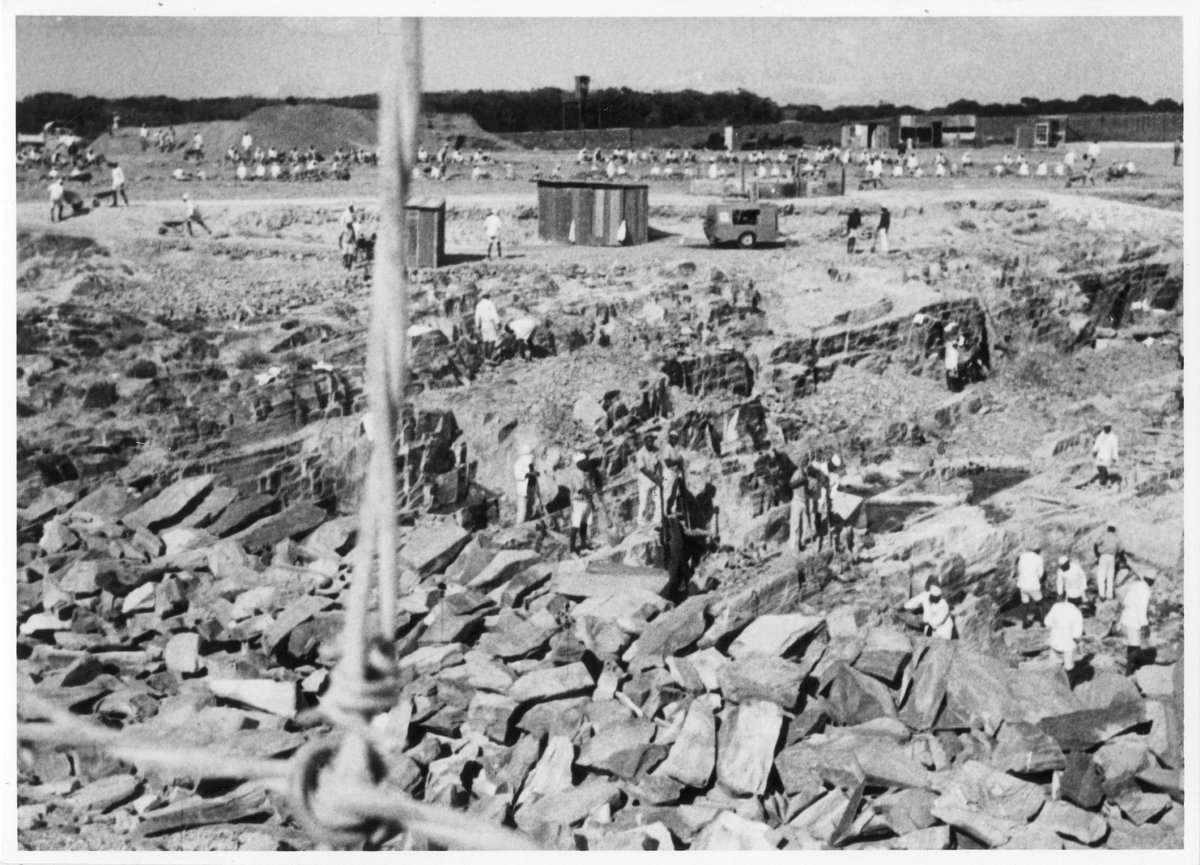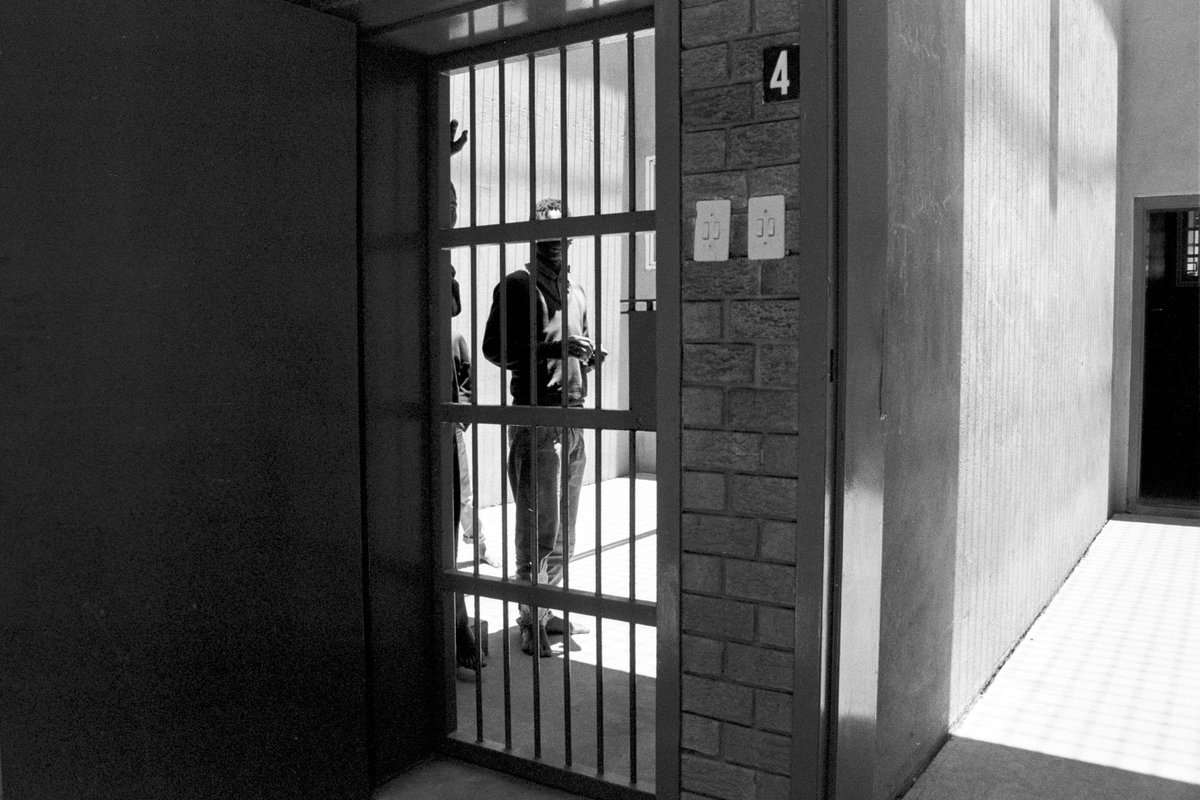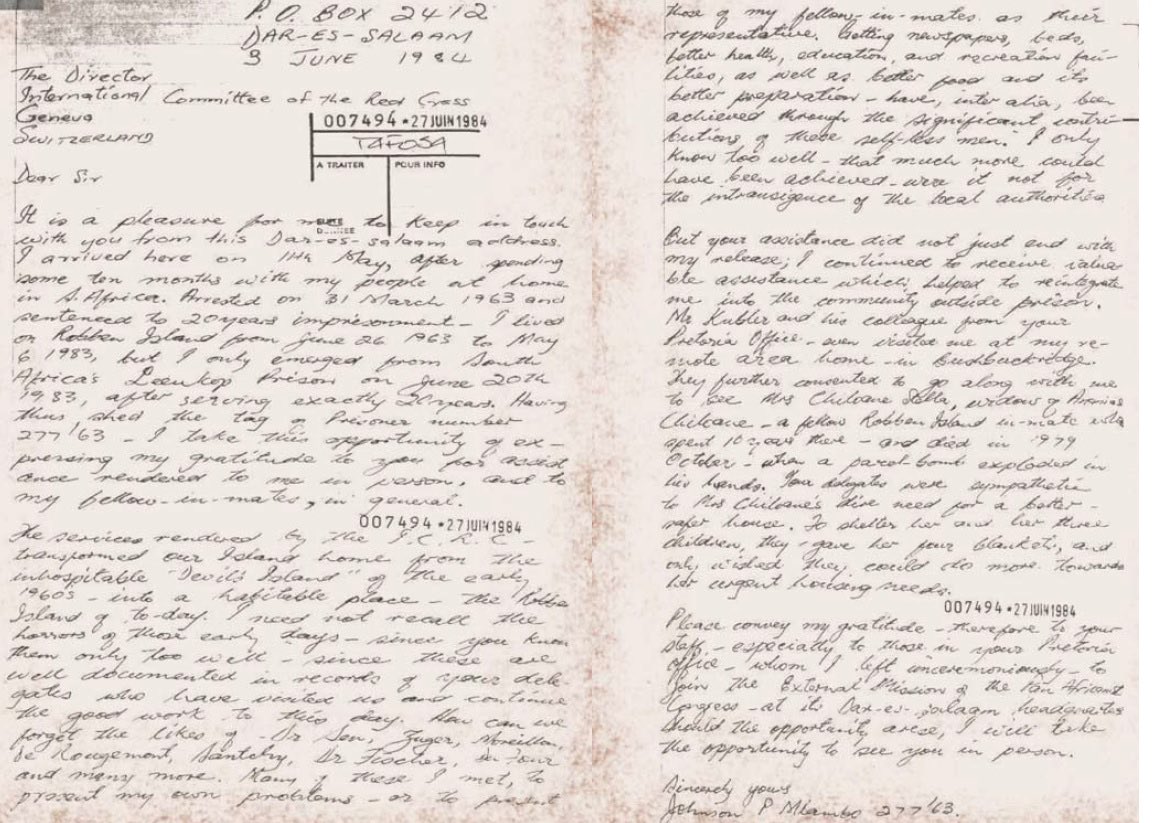Thread
On the 31st anniversary of the release of #Mandela from prison, I am pleased to share again a peak into our work in South Africa during apartheid, with few #exclusive photos, reports and letters from our #archives.
 1967 @ICRC Visit to the "H" block, Robben Island
1967 @ICRC Visit to the "H" block, Robben Island
On the 31st anniversary of the release of #Mandela from prison, I am pleased to share again a peak into our work in South Africa during apartheid, with few #exclusive photos, reports and letters from our #archives.
 1967 @ICRC Visit to the "H" block, Robben Island
1967 @ICRC Visit to the "H" block, Robben Island
Visits to political prisoners on Robben Island started in 1963 to monitor their conditions and treatment. Our first visit was to Robert #Sobukwe. By the 1990s, we had visited 1000s of prisoners across South Africa.
 1967 @ICRC Visit. Forced labor/Stone quarry, Robben Island.
1967 @ICRC Visit. Forced labor/Stone quarry, Robben Island.
 1967 @ICRC Visit. Forced labor/Stone quarry, Robben Island.
1967 @ICRC Visit. Forced labor/Stone quarry, Robben Island.
In 1987, we decided to suspend our visits to detainees until access was granted to ALL security/political detainees – those awaiting trial as well as those sentenced.
 1967 @ICRC Visit. Forced labor/Stone quarry, Robben Island
1967 @ICRC Visit. Forced labor/Stone quarry, Robben Island
 1967 @ICRC Visit. Forced labor/Stone quarry, Robben Island
1967 @ICRC Visit. Forced labor/Stone quarry, Robben Island
Transitory places of detention can be problematic, often places of torture and forced disappearance. In 1992, we obtained authorization for the first time to conduct surprise visits to police stations.
 1992 @ICRC Visit to police station on near Pretoria
1992 @ICRC Visit to police station on near Pretoria
 1992 @ICRC Visit to police station on near Pretoria
1992 @ICRC Visit to police station on near Pretoria
For decades, including during the period of suspension of our detention visits, we supported families of prisoners with food vouchers and travel tickets to visits to their loved ones in prison.
 1991 @ICRC and South African Red Cross visiting a prisoner's family in #Soweto.
1991 @ICRC and South African Red Cross visiting a prisoner's family in #Soweto.
 1991 @ICRC and South African Red Cross visiting a prisoner's family in #Soweto.
1991 @ICRC and South African Red Cross visiting a prisoner's family in #Soweto.
Witness 1: Johnson Mlambo, Robben Island, 1963 to 1983
" The most vital work the ICRC did was to pressure the authorities about the cruel treatment in the prison.”
 Johnson's letter to the @ICRC after his release in 1984
Johnson's letter to the @ICRC after his release in 1984
" The most vital work the ICRC did was to pressure the authorities about the cruel treatment in the prison.”
 Johnson's letter to the @ICRC after his release in 1984
Johnson's letter to the @ICRC after his release in 1984
Witness2: Ahmed Kathrada, prisoner 458/64, 1964 to 1989
“In any evaluation of the history of political imprisonment, the role of the @ICRC stands out boldly for its consistent unwavering support in the struggle of the thousands of political prisoners for basic human rights”
“In any evaluation of the history of political imprisonment, the role of the @ICRC stands out boldly for its consistent unwavering support in the struggle of the thousands of political prisoners for basic human rights”
“We were held in solitary confinement. We were sleeping on ‘velt’ mats in the cells, it was very cold. December (1976) a team from the @ICRC visited and listened to our complaints. After this we were issued with bunks, mattresses to sleep on, pillows and sheets.» Matshoba Mabale:
Mandela
“in those early years the @ICRC was the only organization that both listened to our complaints & responded to them. This was vital, because the authorities ignored us.”
 1967 @ICRC Report. Note how Madiba fought for his comrades & said: I personally have no complaints
1967 @ICRC Report. Note how Madiba fought for his comrades & said: I personally have no complaints
“in those early years the @ICRC was the only organization that both listened to our complaints & responded to them. This was vital, because the authorities ignored us.”
 1967 @ICRC Report. Note how Madiba fought for his comrades & said: I personally have no complaints
1967 @ICRC Report. Note how Madiba fought for his comrades & said: I personally have no complaints

 Read on Twitter
Read on Twitter













